Calculating Entitlement
If you receive benefits
You will usually be entitled to maximum council tax reduction or housing benefit if you receive any of the following benefits:
- Income support.
- Job seekers' allowance (income based).
- Employment and support allowance (income based).
- Pension credit guarantee credit.
This means that all of your eligible rent will be covered by housing benefit depending on your local housing allowance rate. Not all of your council tax bill will be covered by council tax reduction. You will still need to pay some council tax depending on your circumstances.
Non-dependent deductions
However, there may be deductions made for any non-dependent that you have living with you. A non-dependent is someone over the age of 18 who lives with you on a non-commercial basis.
For example adult sons or daughters, elderly parents, other family members or friends.
Housing benefit and council tax reduction will normally be reduced if a non-dependent lives in the household. There is an expectation that non-dependents will make a contribution towards their living costs, including rent, council tax and food, etc.
The amount they pay towards the above is not taken into account. Standard weekly deductions are made from the claimant's housing benefit and council tax reduction entitlement instead. This is shown in the table below:
| Non-dependent deductions | Housing benefit deductions April 2024 |
|---|---|
| Aged 25 or over and on IS/JSA (IB), ESA (IR) main phase | £19.30 |
| Aged under 25 and on IS/JSA (IB), ESA (IR) assessment phase | Nil |
| Aged under 25 and on ESA (IR) main phase | £19.30 |
| In receipt of Universal Credit without any earned income Aged under 25 | Nil |
| In receipt of Universal Credit without any earned income Aged 25 or over | £19.30 |
| In receipt of Job Seekers Allowance (contribution based) | £19.30 |
| In receipt of Pension Credit (guarantee or savings credit) | Nil |
| Aged 18 or over and works 16+ hours per week and has: | |
| Gross income less than £176 | £19.30 |
| Gross income not less than £176 but less than £255.99 | £44.40 |
| Gross income not less than £256 but less than £333.99 | £60.95 |
| Gross income not less than £334 but less than £444.99 | £99.65 |
| Gross income not less than £445 but less than £533.99 | £113.50 |
| Gross income not less than £554 | £124.55 |
| Any other non-dependant (even nil income) | £16.45 |
| Non-dependent deductions | Council Tax Reduction deductions April 2024 - pension age claimants | Council Tax Reduction deductions April 2024 - working age claimants |
|---|---|---|
| Aged 25 or over and on IS/JSA (IB), ESA (IR) main phase | Nil | Nil |
| Aged under 25 and on IS/JSA (IB), ESA (IR) assessment phase | Nil | Nil |
| Aged under 25 and on ESA (IR) main phase | Nil | Nil |
| In receipt of Universal Credit without any earned income | Nil | Nil |
| In receipt of Job Seekers Allowance (contribution based) | £4.90 | £10.00 |
| In receipt of Pension Credit (guarantee or savings credit) | Nil | Nil |
| Aged 18 or over and works 16+ hours per week and has: | ||
|
Gross income less than £235.99 |
£4.90 | £10.00 |
| Gross income not less than £236.00 but less than £409.99 | £10.05 | £10.00 |
| Gross income not less than £410.00 but less than £510.00 | £12.60 | £10.00 |
| Gross income not less than £510.00 | £15.10 | £10.00 |
| Any other non-dependant (even nil income) | £4.90 | £10.00 |
No non-dependant deductions will be made if the claimant or their partner:
- Is blind or has recently regained their sight
- Receives the care component of Disability Living Allowance payable at any rate
- Receives the daily living component at either the standard or enhanced rate of Personal Independent Payment
- Receives Attendance Allowance payable at any rate
If you don't receive benefits
If you do not receive any of the benefits listed above, then the council have to to compare your weekly income and any savings you have. If you and your partner have joint capital of more than £16,000 you will not normally be able to receive housing benefit.
For council tax reduction for working age claimants, the upper savings limit, is £10,000. For claimants who have reached the qualifying age for state pension credit, the upper savings limit remains at £16,000.
Applicable amounts
Applicable amounts vary for different situations, which is one reason why it is very difficult to compare your benefit entitlement with a friend or neighbour. It depends on:
- Your age;
- Whether or not you have a partner or children;
- If someone in your household is disabled.
Your applicable amount is made up of personal allowances (for general needs), and premiums (for special needs). Your applicable amount, and how it has been calculated, is always shown on your decision letter. You need to check this as carefully as you check the income and capital that we have used when working out your benefit entitlement. Please ask us to explain anything you do not understand or that you think may be wrong.
You can use the benefits calculator to do your own 'trial calculation'. You can also see when you will reach state retirement pension age.
We will need to see evidence of your identity, income and capital. If you are a private tenant we will need to see proof of your rent. Details of exactly what is required can be found in the benefit claim form. Any entitlement will normally start from the Monday following the date you submit your claim form online.
In some circumstances we may be able to pay your claim from an earlier date than the date we received your claim form. This is known as backdating and you will need to show 'good cause' for not claiming earlier.
Council Tax Reduction for working age customers
The tables below shows what level of Council Tax Reduction (or discount) you will receive depending on your family income. The incomes stated in the table below would be your net income after any disregards have been applied such as the £25pw disregard if you are earning. This disregard applies to the household rather than each person that is working. Incomes such as Disability Living Allowance, Personal Independent Payment, and Carers Allowance are disregarded in full. The income table will increase year on year in line with the national minimum wage.
|
Bands |
Band 1 |
Band 2 |
Band 3 |
Band 4 |
Band 5 |
|---|---|---|---|---|---|
|
Single |
£0.00 – £114.40 |
£114.41 – £171.60 |
£171.61 – |
£228.81 – |
£286.01 – |
|
Couple |
£0.00 – £154.40 |
£154.41– £211.60 |
£211.61 – |
£268.81 – £326.00 |
£326.01 – |
|
Lone parent with 1 child |
£0.00 – £169.40 |
£169.41 – £226.60 |
£226.61 – |
£283.81 – |
£341.01 – |
|
Couple with 1 child |
£0.00 – £209.40 |
£209.41 – £266.60 |
£266.61 – |
£323.81 – |
£381.01– |
|
Lone parent with 2+ children |
£0.00 – £224.40 |
£224.41 – |
£281.61 – |
£338.81 – |
£396.01 – |
|
Couple with 2+ children |
£0.00 – £264.40 |
£264.41 – |
£321.61 – |
£378.81 – |
£436.01 – |
|
Bands |
Band 1 |
Band 2 |
Band 3 |
Band 4 |
Band 5 |
|---|---|---|---|---|---|
|
Disabled/carer claimants |
£0.00 – £264.40 |
£264.41 - £321.60 |
£321.61 - £378.80 |
£378.81 - £436.00 |
£436.01 - £493.20 |
How will my benefit be paid?
Council tenants will have their housing benefit credited to their rent account every week.
Residents who rent from a private landlord or housing association will have their benefit paid into their bank account. This transfer is via Banks Automated Clearing System (BACS) and you will need to let us know your bank details. These payments are made fortnightly in arrears so you will receive this payment at the end of the fortnight it relates to.
In some circumstances we may pay your landlord four-weekly in arrears. This can happen if you are more than eight weeks in rent arrears and if you rent from a private landlord or housing association.
Council tax reduction will be credited directly into your council tax account in one lump sum.







